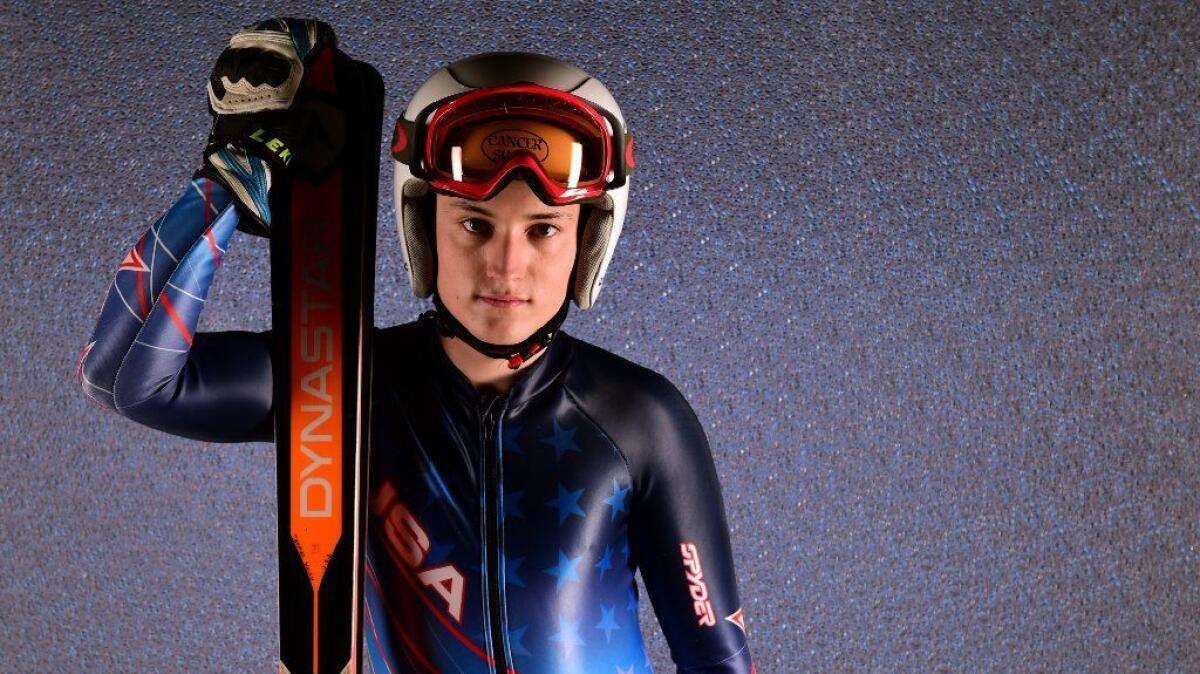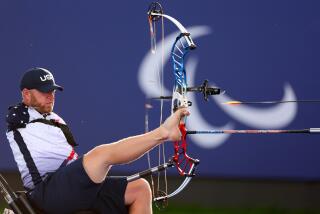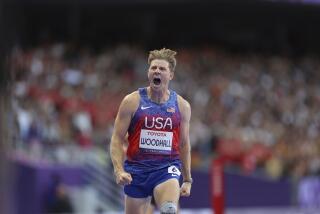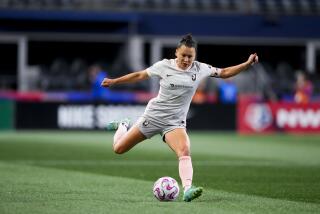Thomas Walsh beat cancer, took gold medal skier Mikaela Shiffrin to the prom and is eyeing Paralympics

The diagnosis arrived the day before Thomas Walsh left for a ski academy in Vermont.
For months, the rising star on the U.S. junior skiing circuit dismissed the ache in his right hip. After all, a snow-covered future beckoned. Walsh, then 14, planned to follow the example of Mikaela Shiffrin, his close friend since preschool in Vail, Colo., and move East to focus on skiing. They expected to compete in the Winter Olympics one day.
But doctors discovered a rare bone and soft tissue cancer, Ewing’s sarcoma, had invaded Walsh’s pelvis and spread to his lungs. The odds for survival were so low that he still refuses to name them.
“From there, everything changes,” Walsh said, now 22. “I was fortunate to be young enough to not understand what was going on. Cancer was just a word to me. It wasn’t an experience yet.”
Almost nine years later, the ravages of treatment have faded. The cancer is gone. He is an up-and-coming U.S. Paralympic Alpine skier who doesn’t think of himself as disabled.
The bond with Shiffrin remains. Perhaps the best female skier alive, she already owns a gold medal from the Sochi Games and ranks as the world’s top competitor in the slalom and giant slalom ahead of the Winter Olympics in Pyeongchang next month. But she is awed by her friend.
“He’s one of the most talented athletes I’ve ever known,” said Shiffrin, 22, the winner of 41 World Cup races. “Sports, in a lot of ways, is like art. It’s very much an expression of your personality, your work ethic, your mentality. It’s amazing for him to be able to find that expression.”
It almost didn’t happen. Not after chemotherapy and radiation blasted Walsh’s slight body for 13 months at the Denver Children’s Hospital and the Dana-Farber Cancer Institute in Boston. His weight plunged to about half of his current 130 pounds. The vibrant kid who once won a national triathlon, took skiing lessons from Shiffrin’s mother, Eileen, at the Vail Ski and Snowboard Club, participated in ballet, acted and played several instruments eventually resembled a walking skeleton.
Walsh underwent more than a dozen surgeries. Shiffrin’s father, Jim, sometimes served as one of the anesthesiologists. Surgeons removed part of Walsh’s pelvis and lungs. They almost took his right leg. Shiffrin visited her weak, atrophied friend as much as her burgeoning skiing career allowed. Doctors told Walsh he wouldn’t ski again.
Word of Walsh’s fight reached three-time U.S. Olympic Alpine skier Steven Nyman. He gave Walsh his bib from the Torino Games. He wrote Walsh’s name on the back of his helmet. They struck up a friendship that helped Nyman through a difficult stretch when he was hobbled by a series of injuries.
“To see him with leg braces and crutches and not being able to walk at all and given less than a 10% chance of living to now being one of the best in the world,” Nyman said. “He was told he might never be able to walk again, let alone ski.”
Nyman brushed back tears: “He’s an inspiration.”
Doctors declared Walsh cancer-free after 14 hellish months. He finally made it to the ski academy in Vermont. But the trial wasn’t over. Walsh had to relearn how to walk, run and ski. He struggled to remember his phone number thanks to side effects from chemotherapy, among other complications. By 2012, though, he took Shiffrin to the Green Mountain Valley School’s prom in Waitsfield, Vt.
“He’s had a very, very difficult recovery,” Shiffrin said. “A very tough road.”
In February 2014, Walsh traveled to the Sochi Games through the Make-A-Wish Foundation. On a raw, rainy day, he surprised Shiffrin after she finished fifth in the giant slalom. He had stopped skiing after a brief comeback. Watching Shiffrin and Nyman compete triggered his return. He learned about Paralympic alpine skiing, where he could compete in the LW4 classification because part of his pelvis has been removed.
Walsh joined the U.S. Paralympics national team in December 2015. Less than two months later, in St. Moritz, Switzerland, he won his first International Paralympic Committee Alpine Skiing World Cup race. He hasn’t slowed since.
“I really want to do some damage,” said Walsh, who ranks among the world’s best in his classification in four events and found time to graduate from the Savannah College of Art and Design last year.
He looks like your typical athlete. Two boots, two poles, two skis, an ever-present grin. Apart from the difficulty in tugging a ski boot on his right foot — the problem is improving — the disability is internal.
The biggest issue, like other Paralympic hopefuls, is money. On podiums, he wears a hat with “Mom” written on it where a title sponsor’s logo would usually go. That’s in honor of his mother, Kathleen, and a plea for help funding his career.
“Never mind being a broke college kid, I’m trying to fund a hugely expensive athletic career,” Walsh said. “It really hits home to me, saying, ‘I’m out here trying to do it on my own.’ I’m making a few breakthroughs, but I’m not able to support myself.”
Last fall, no one paid much attention to the thin, brown-eyed man sitting alone at a table in the middle of a hotel ballroom in Park City, Utah. Shiffrin had been in the same room that week. So had Nyman. Scads of cameras and microphones clustered around them. They have Olympic appearances and big-name sponsors and hefty social media followings.
“I couldn’t have imagined sitting in the same room as them,” Walsh said.
The illness, though, always lurks in the background. He posted on Facebook at 3:01 a.m. Jan. 1 that his latest test didn’t find any cancer. Relief seemed to hang on each word.
“It’s never really going to end,” Walsh said. “That’s something people don’t really understand with cancer. You live with it for the rest of your life.”
In the meantime, he has another task. When Nyman handed over his bib from Torino, Walsh made a promise. He’d earn a Paralympic bib one day and return the other bib to Nyman. The goal is almost within reach.
Follow Nathan Fenno on Twitter @nathanfenno
More to Read
Go beyond the scoreboard
Get the latest on L.A.'s teams in the daily Sports Report newsletter.
You may occasionally receive promotional content from the Los Angeles Times.











